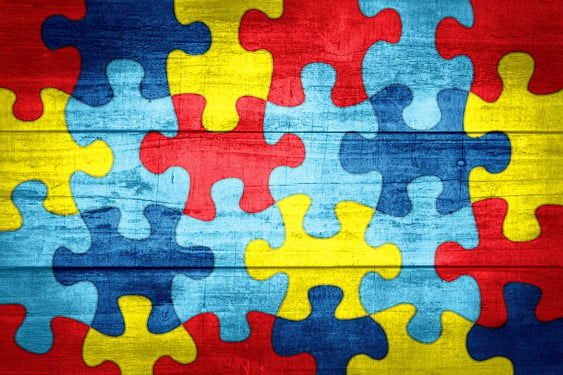What autism is (and isn't)
Values

Values
Querida Swinnerton is Brunel Australasia's Regional Director, a passionate diversity and inclusion advocate, and the mother of a beautiful young girl Summer who has autism. As part of Autism Awareness month Querida shared her insights on what people often misunderstand or don't feel comfortable asking about autism.
For me autism is a unique way of processing and interpreting information. We get information from all our senses. Whether it be through touch, smell, sight, hearing and taste. The way a person with autism processes and interprets this information can then affect how they communicate, socialise and behave.
One my favourite sayings is, “If you have met one person with Autism, then you have met one person with autism” (Dr Stephen Shore).
Just like you and I are different so is every person with autism. While they process and interpret information differently to the ‘norm’, the way in which they do this will be completely different for everyone on the spectrum. The other consideration is some people with autism have other diagnosed conditions as well. Quite often people will latch on to the autism diagnosis and not consider that the person may have other contributing factors to their behaviour, social and communication skills.
It depends on who you ask. Personally, I don’t get hung up or ‘right’ or ‘wrong’ language, particularly if that dissuades people from having the courage to speak about it. I like neurodiversity because it expresses the great variety or difference across the people you’re describing. I do struggle with autism being described as a disability.
I truly believe that if we can unleash the minds and potential of our neurodiverse, then it’s actually an ability. Ultimately, it’s so much more important and helpful to talk to people and families with autism than to get the terminology correct.
In my experience, no – because every person with autism is different. With the right environment, support and a desire to do a specific thing, I think anything is possible. Fro example, my daughter is four and a half and loves to ‘perform’. She participates in dance classes and performed in front of 1000 people at her end-of-year concert with no issues at all – in fact, she thrives on it.
On the other hand if she has to report news in front of her class of 19, then she gets overwhelmed as she is drawing on her verbal communication skills, which she recognises as less strong than those of her peers. If we, as her parents had assumed she was shy in all regards and therefore wouldn’t enjoy dancing, then we all would have missed the joy of her performances.
So, while people with autism find some daily tasks and interactions harder than others, in the right environment, with support and their own willingness, they can do whatever they put their mind to.
Treatment varies depending on the individual and where they have difficulties. It can include speech therapy, OT and support from psychologists, and can be delivered 1-to-1 or as part of a group. The type of treatment also varies based on the age of diagnosis - in Australia much of the funding for intervention is aimed at those between the ages of 0-7 because the brain still is being developed and new behaviours, habits etc are more easily absorbed and adapted.
Essentially, the belief is that the therapy is more effective in this range. Therapy continues past this age group, but becomes more tailored to the individual and their circumstances.
Most definitely. There diagnosed and undiagnosed neurodiverse people everywhere, many of them have developed their own very effective coping mechanisms, and every one of them is different. I've spoken with many people, who upon reflection, realise that they have known someone, at school or in the work environment, who they realised was a little bit different, but couldn't quite put their finger on why of how.
Now, with the benefit of hindsight and education, we can look back on some of those cases and wonder if perhaps they were in some way neurodiverse.
Talk to Brunel about how our flexible Diversity and Inclusion solutions can support your organisation to enact change, achieve your Corporate Social Responsibilities and build a reputation as a champion of equality and diversity.

Perth